More and more journalists are being harassed, prosecuted, and imprisoned. Freedom of the press is at an all-time low in Tunisia. Since July 25 and the promulgation of Decree-law 54, hostility towards journalists has been on the rise.
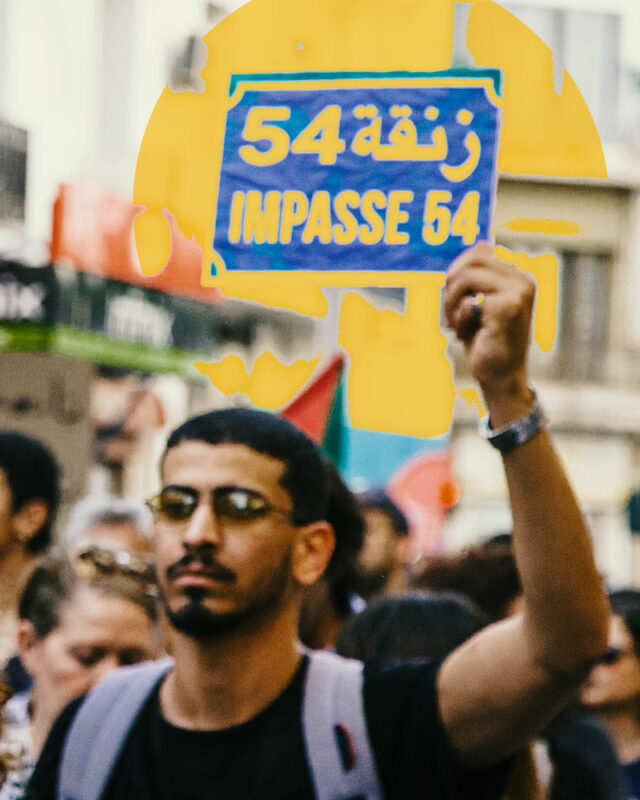

More and more journalists are being harassed, prosecuted, and imprisoned. Freedom of the press is at an all-time low in Tunisia. Since July 25 and the promulgation of Decree-law 54, hostility towards journalists has been on the rise.

The crackdown on free speech in Tunisia continues as another critical voice silenced. Houssem Hajlaoui, a prominent tech activist and web architect, was arrested on May 14th and thrown behind bars in a shocking display of the regime’s intolerance for criticism.
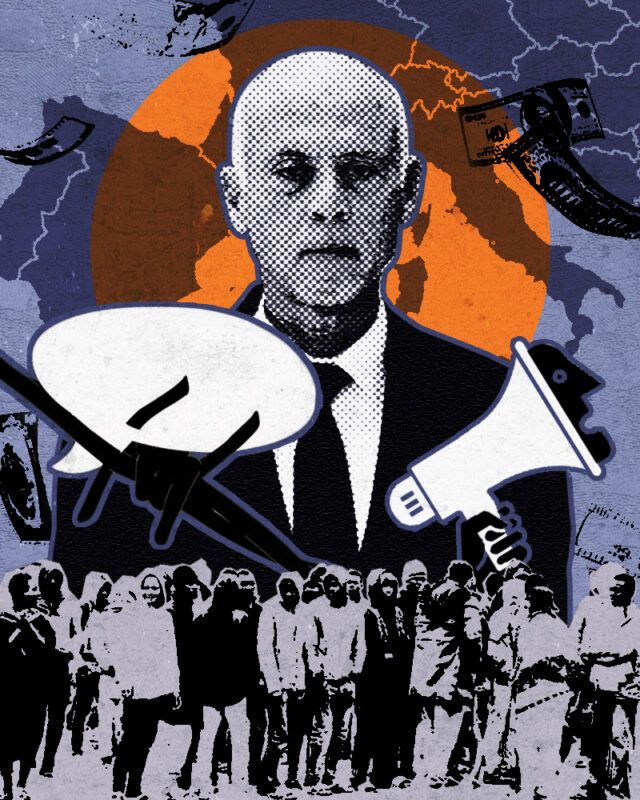
Civil society activists and employees arrested, UN organizations vilified, media outlets—including Nawaat—targeted. Once again, the country’s migration crisis serves as pretext for the ongoing witch hunt led by President Kais Saied to suppress the voices of regime critics.
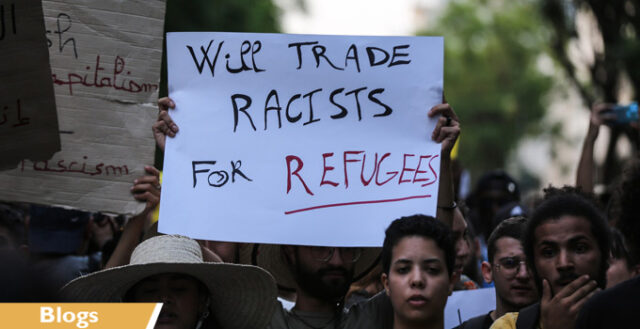
In a shocking display of President Kais Saied’s populist politics and anti-migrant crackdown, Tunisian police forcibly dismantled a protest camp of asylum seekers in Tunis early on May 3rd, expelling around 500 black migrants to the Algerian and Libyan borders without food or water. This brutal action underscores the Tunisian government’s increasingly explicit agenda of racial purification targeting sub-Saharan Africans, which human rights groups condemn as blatant anti-Black racism cloaked in anti-immigrant rhetoric.
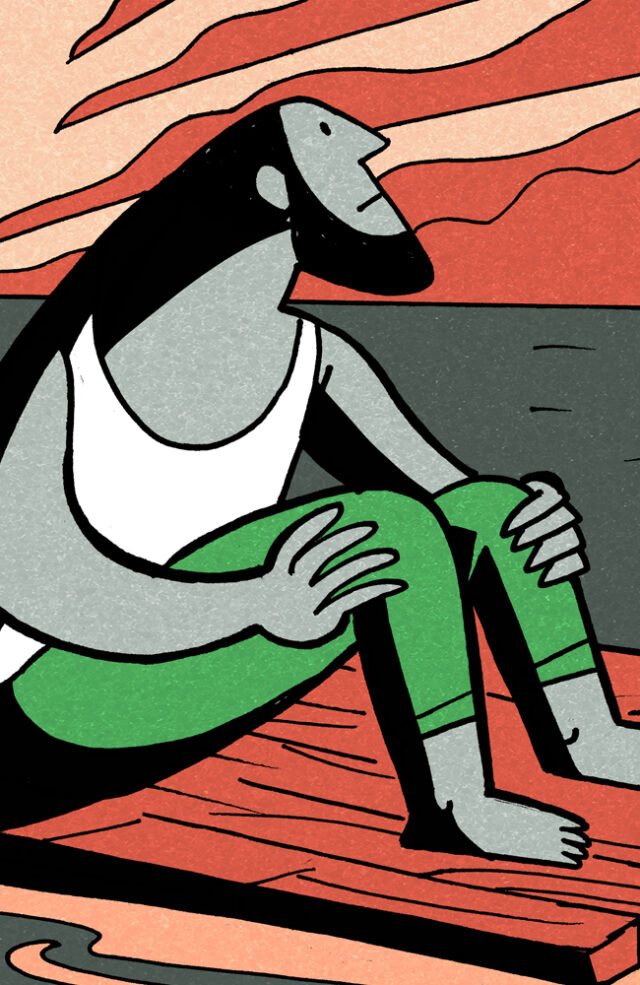
In the months after the 2011 Tunisian uprising, the Islamist party Ennahda emerged from the shadows of repression to win a comfortable victory in the first free elections, dominating in urban Tunis almost as much as it did in rural Tataouine. The party soon became the most important actor in the democratic transition. But now, in the face of a sharp authoritarian reversal, Ennahda faces its most serious crisis in decades.
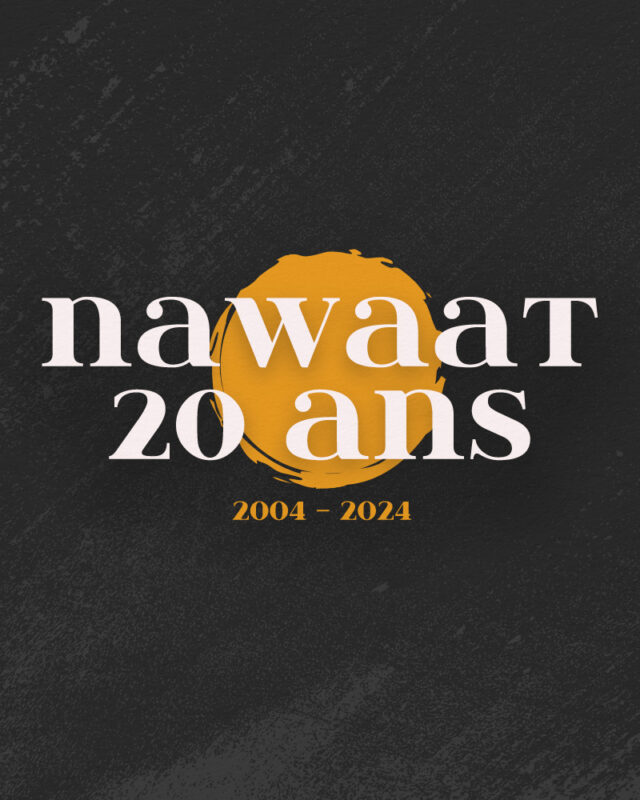
Twenty years ago, Nawaat began as a modest platform for Tunisians to voice their dissent against censorship and connect over shared struggles for freedom. Evolving from a simple forum to a comprehensive digital media outlet, it has played a crucial role in disseminating vital information and fostering a community of activists, bloggers, and journalists dedicated to the cause of democracy and transparency in Tunisia.
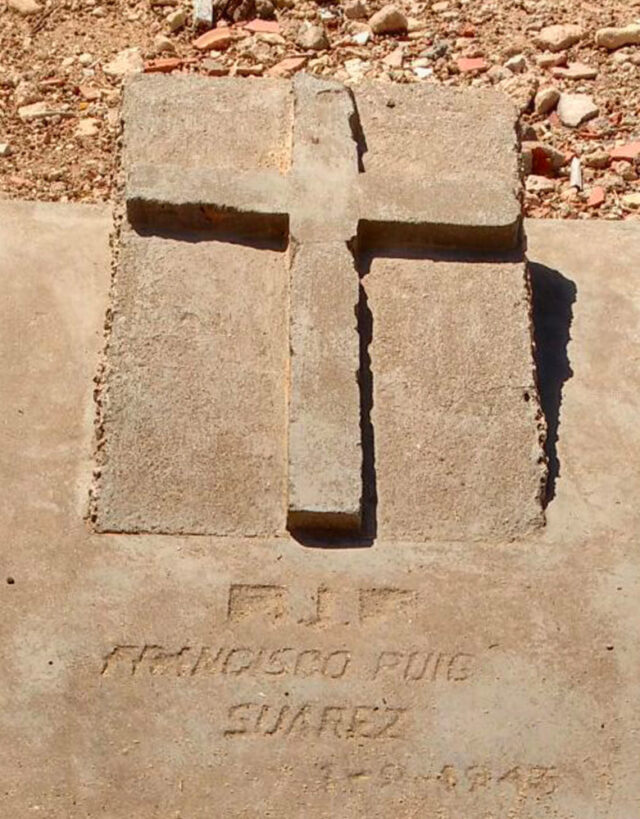
In the aftermath of General Franco’s victory in Spain’s civil war, an ally of Hitler and Mussolini, nearly half a million Spanish Republicans were compelled to flee their homeland starting in February 1939. This mass exodus, known as the Retirada, saw hundreds of Spanish Marine officers seeking refuge in Bizerte, Tunisia, from May 1939 to June 1940. They found themselves in work camps, particularly near Mount Chaambi in Kasserine, where despite enduring hunger and illness, most remained for 17 years, from 1939 to 1956, with some staying until the early 1980s. Only about 20 of them died there between July 1941 and October 1949, and were laid to rest in a now-forgotten cemetery.
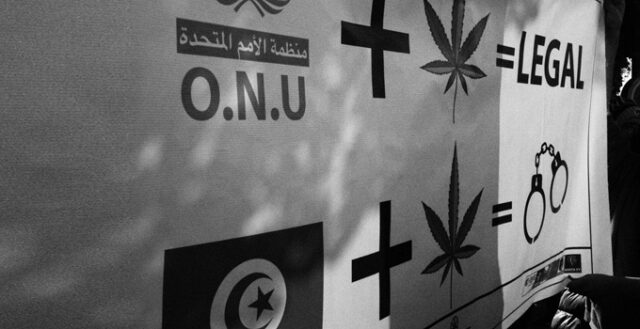
Cannabis users in Tunisia are facing a wave of repression that the country “has not seen since the Ben Ali era,” as one activist puts it. And President Kais Saied’s war on drugs serves as pretext for the reemergence of a police state.

They demand better public transport, medicine for the neighborhood clinic and real solutions for unemployment. The state has turned a deaf ear. Residents of Douar Hicher have issued a warning: “the spark that will ignite the revolution of the hungry is here.”

Smuggling in Tunisia is often presented as a field of mystery and conspiracy. But we actually know a lot about how it works, and that engaging with it effectively requires strengthening rather than alienating border communities.
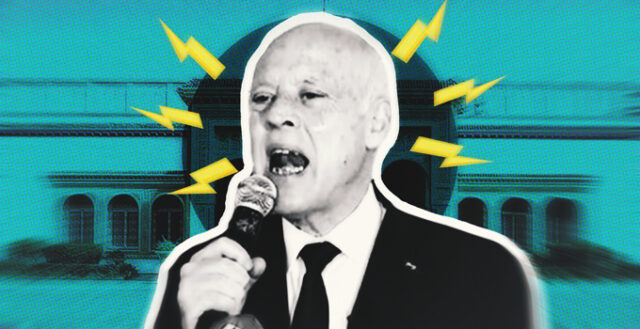
Kais Saied is particularly generous when it comes to spouting off vague accusations. Ever loyal to his habitual fallback, conspiracy theories, the Tunisian president is quick to point a finger at certain “parties” without naming them, to throw verbal jabs and employ sarcasm as captured in videos diffused on social media. With all this verbal jousting, who has time to respect the rule of law anyway?
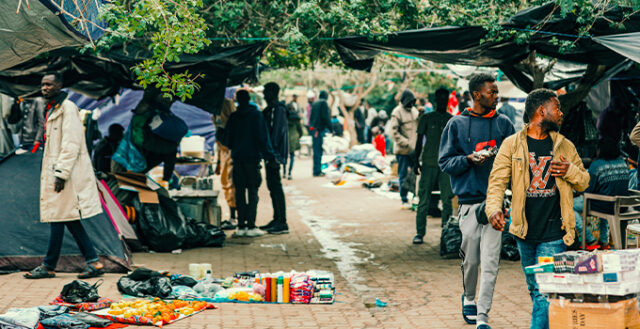
“Even dogs deserve a more decent life,” says a young Sudanese man, one of thousands who have arrived in Tunisia in the past months. In Tunis’ northern suburb of Lac 1, a makeshift camp has sprung up, a sprawl of sheet metal tents, tarps and used blankets spread across the ground. The contrast with the neighborhood’s ostentatious architecture is glaring.
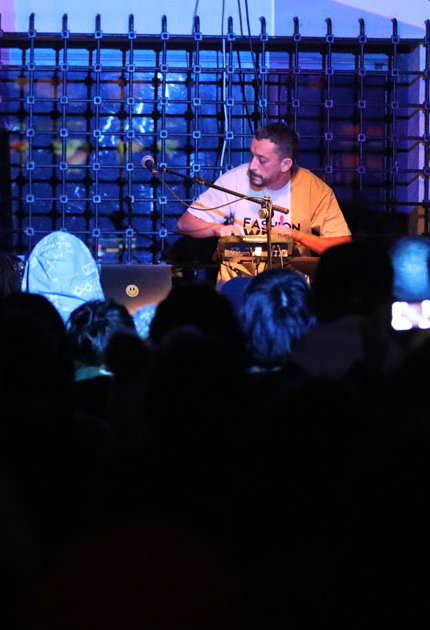
Every year, Nawaat—one of Tunisia’s rare independent media outlets, which publishes both a webzine and paper magazine—hosts its festival in the capital. The original theme chosen for this year’s edition was feminism, however, current events in Palestine pushed Nawaat’s editing team to expand the scope of the event in tribute to the spirit of resistance.
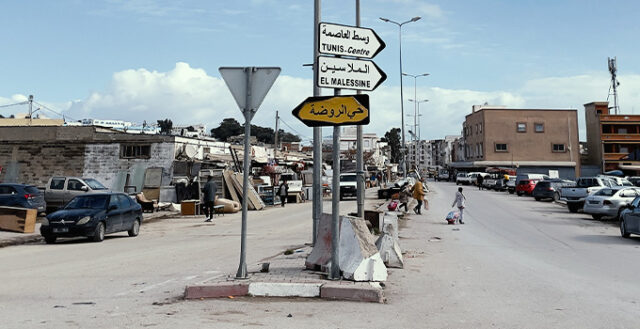
“I regret the day I threw a rock at a police officer,” says a resident of Mellassine. 13 years after the revolution, public resentment toward the police is no less palpable in a neighborhood rife with drug trafficking, crime and misery. For many young men and women here, the only apparent escape route from their daily struggle is one heading overseas.
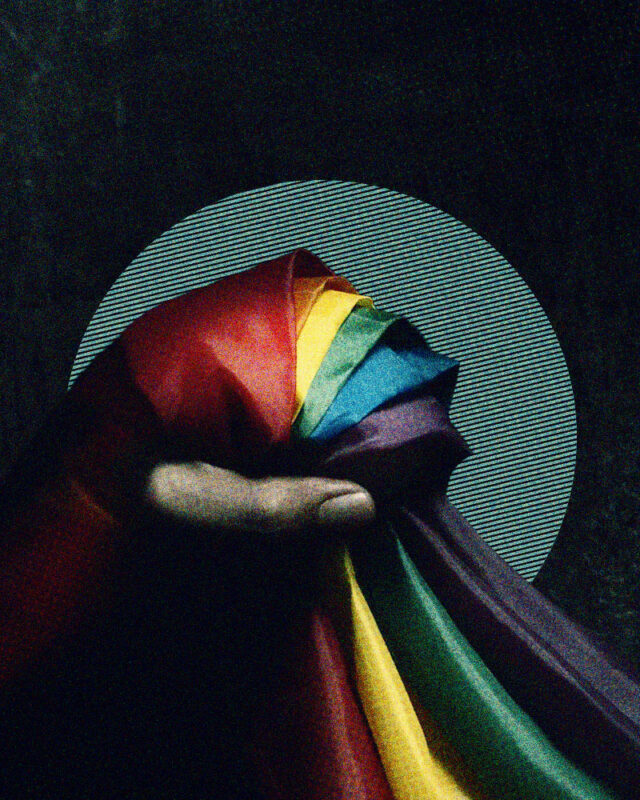
Fleeing persecution in their countries of origin, LGBT migrants set off in the hopes of finding safety elsewhere. During their journey across country borders, they are exposed to extreme violence, and sexual abuse in particular. Their ordeal continues when they arrive in Tunisia, where they are confronted with other forms of abuse. For these individuals, the future does not lie in Tunisia. But their safe passage to another country requires the support of the UNHCR.
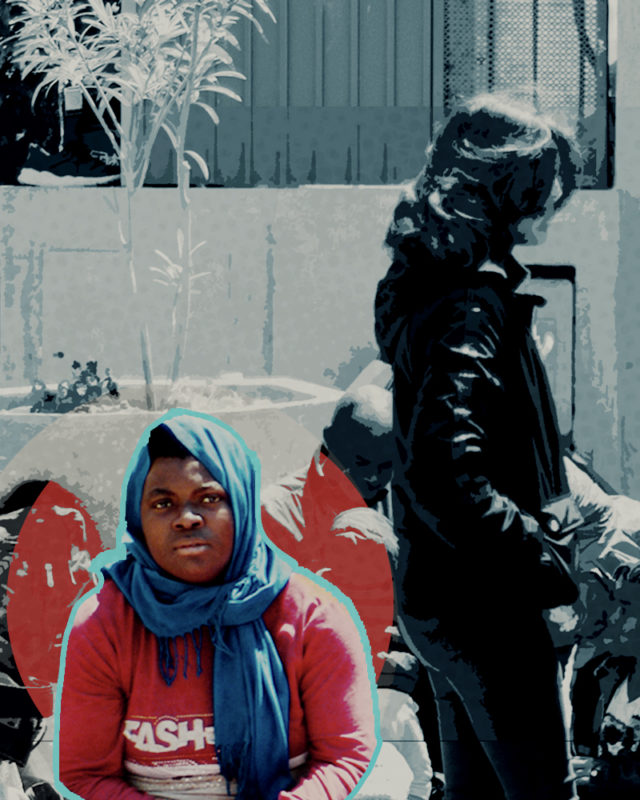
Whether they have endured the trauma of rape in their own countries, along their migration journey or after arriving in Tunisia, their lives are a constant struggle for survival that is marked by pitfalls and exploitation. Their stories, collected by Nawaat, attest to this violence.
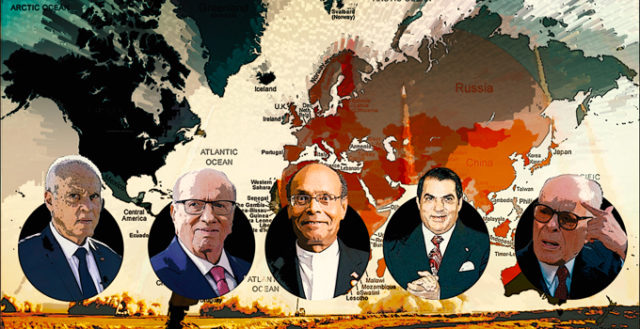
« Operation Al-Aqsa Flood » has marked Kais Saied’s divergence from Tunisia’s traditional stance favoring a two-state solution, a position established by Habib Bourguiba in 1965. The present article offers a glimpse into Tunisia’s diplomatic evolution regarding major regional and international conflicts.
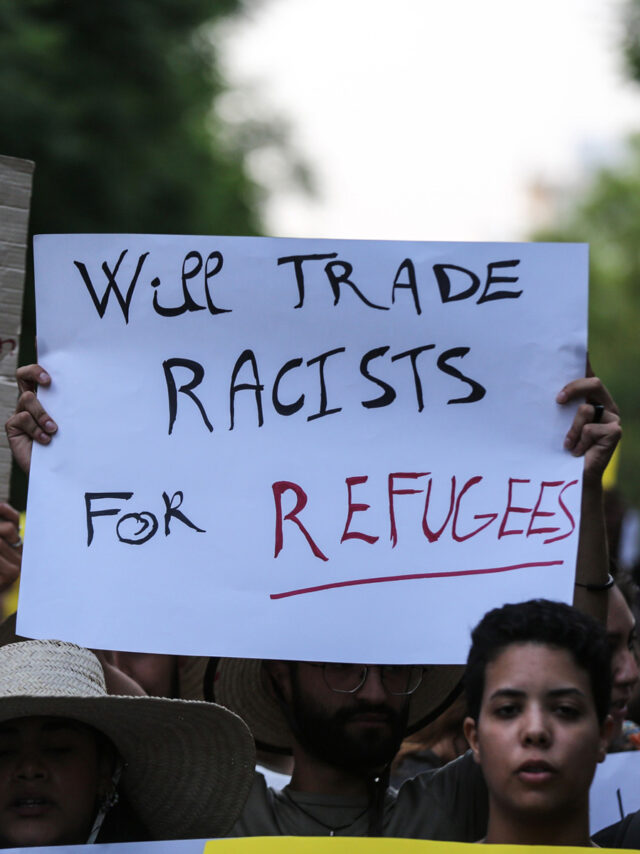
A new report by Refugees International sheds light on the systematic human rights violations targeting refugees, asylum seekers and migrants in Tunisia since the arbitrary expulsions carried out in July, and calls for Europe and the US to reconsider their funding—and fundamental approach—for managing migration across the Mediterranean.